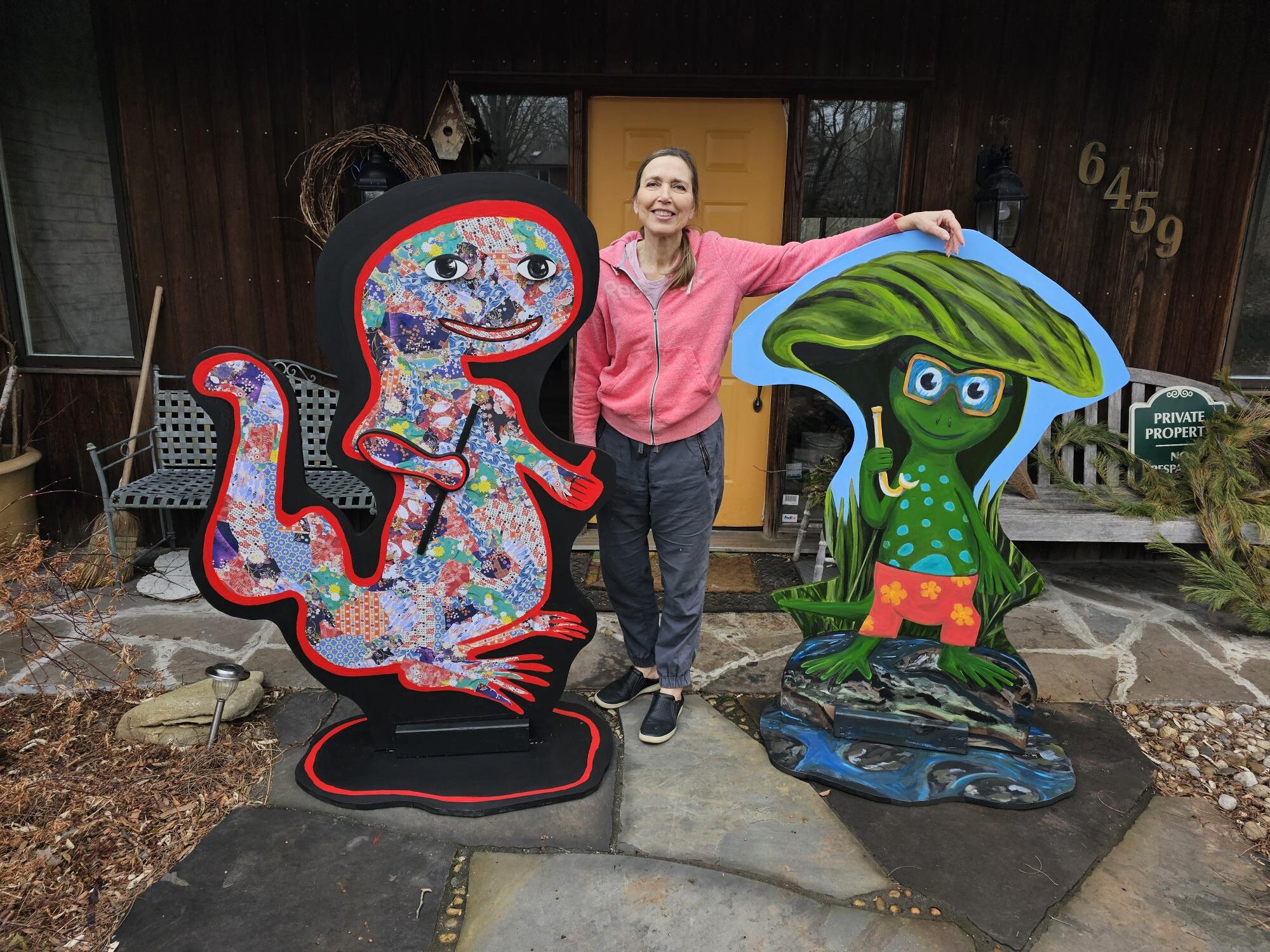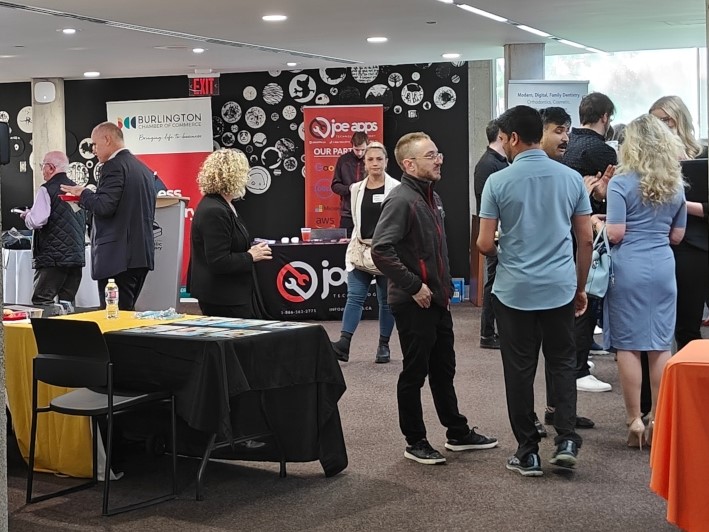It’s that time of year again for Burlington’s 100 Women Who Care to come together, listen to five-minute presentations from nominated charities, and vote on the organization to whom they’d like to give their $100 donation. By the end of the night, one of the charities will walk away with nearly $10,000 to help them continue serving Burlington.
100 Women Who Care meets quarterly, and members commit to a $400 annual donation (split between the quarterly meetings); members under 30 years of age can instead commit to a $200 yearly donation. Members must donate regardless of their attendance at the meeting and must donate to the charity selected by majority vote.
This entirely volunteer-run organization has been in Burlington since 2013, with its first meeting taking place six months later. The concept, though, comes from Michigan, where the first 100 Women Who Care group came together in 2006. Since then, the movement has spread across the United States and Canada.
So who are Burlington’s 100 women?
According to Lisa Bilodeau, one of the five women in the leadership team alongside Marion Goard, Cindy Pedlar, Leona Banfield, and Jennifer Rayworth, the organization attracts people who want to make a difference but don’t have time to volunteer. “A lot of people are already on boards of charities, and are really involved in community, and there are others who this is literally all they can do,” notes Bilodeau.
Some members even make it a group effort, so that a team of five colleagues or friends, for instance, will each put in $20 to make up the $100 donation for each event (or more if the team so chooses), and their group will get one vote towards their charity of choice.
Members also have the opportunity to nominate a charity ahead of each quarterly meeting, as long as that charity serves Burlington directly.
Giving circles are not new; probably most of us have been involved in a group of people who pass the hat around for everyone to put a toonie in towards a colleague who just had a baby or something similar. 100 Women Who Care are simply putting a bit of structure around it. Bilodeau says that the real beauty in it is that it teaches everyone involved about their own community. Members learn about fantastic local organizations and the services they provide, and have the opportunity to nominate them, hear their presentations, and ask them questions. Not only that, but learning about local organizations also illustrates what’s going on in Burlington.
“I learned about needs in Burlington that I didn’t know existed,” explains Bilodeau, giving the example of SAVIS of Halton, the recipient of the September 2020 donations. Through SAVIS (which stands for Sexual Assault and Violence Intervention Services of Halton), members learned that Halton is one of the province’s top areas for sexual trafficking, due to its proximity to several major cities and to the U.S. border. “Literally because of our geography,” says Bilodeau. SAVIS provides services including safe houses, a 24-hour crisis line, support for survivors of sexual assault and violence, as well as education (how to spot the signs of abuse and grooming, for instance).
These charities range widely in terms of services they provide; there are the food security groups, like Burlington Food Bank and Halton Food for Thought, and well-known charities like Carpenter Hospice, Children’s Aid Foundation of Halton, and YWCA Hamilton Halton (all of which are previous recipients of the 100 Women Who Care donations). But there are also charities that provide the kind of services that most of us don’t usually think about — like Stride, who help people experiencing homelessness, addictions, or mental health issues to achieve in their professional endeavours. “They’re about stopping the cycle, to recognize their worth to society,” describes Bilodeau. “Those are the kinds of things I love hearing about — and our members do, too.”
These community connections turn into personal connections. The 100 Women Who Care (with women, gender-nonconforming people, and two-spirited people amongst them) are all “intentionally looking to help in the community and help continue to make more connections,” says Bilodeau. The leadership group often finds that members will donate outside of their yearly commitment to the charities that were nominated but not chosen. Volunteer connections are also made.
The 100 Women Who Care also want others to know that this is not a group strictly for wealthy women (the meetings only take place at the Burlington Golf and Country Club because one of the 100 women is a member, so the space was offered free of charge). Besides the option for teams to become members, and the lower annual commitment for those under the age of 30 (after all, “the younger you commit to philanthropic endeavours, the longer or more likely you are to commit,” explains Bilodeau), businesses can also join, and can choose to donate through their business or do something else. Modern You Medical Aesthetics is one such business; for every gift card purchased at their business, a percentage goes towards a 100 Women charity. At every meeting, they bring four or five of their “female-focused staff to give a certain amount of money…and it’s an opportunity for staff to participate in the community as well,” Bilodeau says.
During the pandemic, all meetings were, of course, virtual; post-pandemic, 100 Women has moved to a hybrid style of meeting — another lowering of the barrier, allowing people who are out of town, nursing a baby, or maybe caregiving for an older family member to participate and vote for their charity of choice without physically being at the meeting. “It opens up the window for everyone,” notes Bilodeau.
Bilodeau notes that there are often people coming into or moving out of 100 Women Who Care, for financial reasons, changes in the time they have available, or moving somewhere else, and sometimes members are more or less involved in the voting process (“There are seasons for everybody”), but there are always organizations in Burlington that make worthy nominations.
And at the next meeting, the chosen charity comes to tell members how their donations were used. Bilodeau gives the example of Home Suite Hope, the chosen charity in November 2022, which typically help single mothers and their children to move forward in their lives, by providing housing, education (including life skills, two-year college programs, and/or professional development), mentorships and employment support. Home Suite Hope needs an additional $9,543 on top of their guaranteed funding for each family annually; the 100 Women were able to one of those “partners in change” for one such family.
Hearing about their impact is just another way of deepening those community connections, underlining the importance of philanthropy, and inspiring the 100 Women Who Care to keep caring. In the spirit of reinforcing the power of collective giving and the enduring spirit of compassion in Burlington, Local-news.ca will look forward to learning more about the nominated and chosen charities from this September’s 100 Women Who Care meeting, and relaying that back to you, the wider community.





